Picture this: It’s a quiet Sunday morning and you’ve just flushed the toilet when, horror of horrors, the water starts to rise. As the panic sets in, you find yourself wondering, “Can toilet paper clog pipes?” after all, it’s meant to go down the toilet.
We’ve all faced the dreaded toilet bowl standoff, hoping the water stops climbing and doesn’t overflow. It’s the moment when a simple household item turns into a plumbing nightmare.
As you stand there, plunger in hand, you realize that the answer to your frantic online search might save the day—or at least your bathroom floor.
Table of Contents
Can Toilet Paper Clog Pipes?
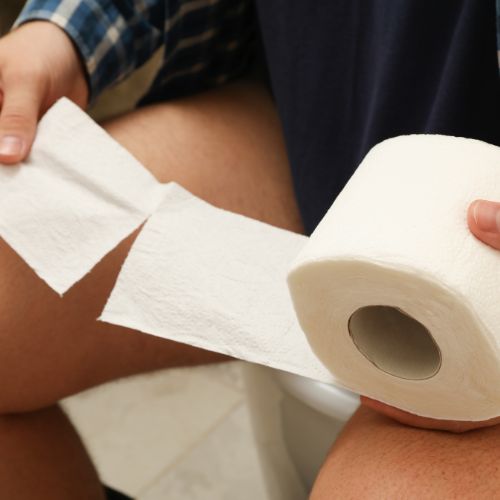
Toilet paper can clog pipes. Whether this happens to you or not, depends on the type of toilet paper you use and how much you use. Toilet paper is designed to break down in water, but if you use too much it may not dissolve properly and can cause a blockage.
Several things can block your pipes, including cigarette butts, paper towels, feminine products, dental floss, and even medications. Surprisingly, toilet paper is one of the most common culprits.
If you have an older toilet or imperfect pipes, it’s even more important to use the correct toilet paper to avoid potential disasters.
To prevent clogs, it’s recommended to use a moderate amount of toilet paper and to only flush toilet paper down the toilet. If you use flushable wipes, flush the toilet paper first, then flush one flushable wipe.
Toilet paper and flushable wipes combined can clog pipes.
The Basics of Toilet Paper and Plumbing
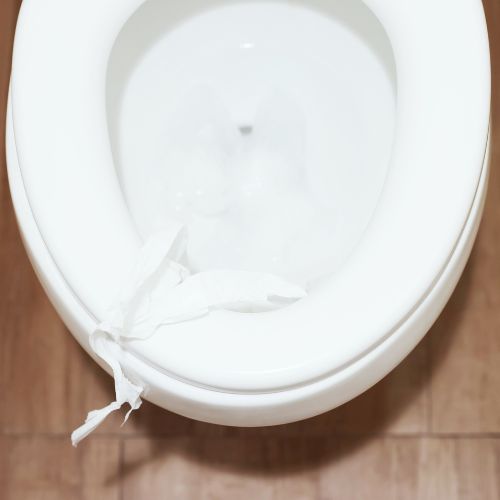
Toilet paper is an essential item in every bathroom, but have you ever wondered how it interacts with your plumbing system? You might be surprised to find that toilet paper is one of the most common causes of clogged toilets.
Composition of Toilet Paper
Toilet paper is typically made from a combination of wood pulp and water. Some brands may also include other materials such as recycled paper or synthetic fibers. The thickness and softness of toilet paper can vary depending on the number of plies it has.
In 2023, the popularity of renewable sources has increased also, such as bamboo toilet paper.
How Toilet Paper Interacts with Water
When toilet paper is used, it is flushed down the toilet and enters the plumbing system. Toilet paper is designed to break down in water, but the speed at which it dissolves can depend on several factors, including:
- The amount of water used during flushing
- The type of toilet paper used
- The condition of the plumbing system
These can all affect how quickly toilet paper dissolves and the likeliness of clogging your pipes.
The Role of Toilet Paper in Sewage Systems
Toilet paper plays an essential role in sewage systems. When flushed down the toilet, it travels through pipes and eventually reaches a sewage treatment plant.
At the treatment plant, the toilet paper is broken down further through a process called digestion. This process uses bacteria to break down the toilet paper and other organic materials into sludge that can be safely disposed of.
It is important to note that flushing anything other than toilet paper down the toilet can cause problems in the plumbing system. Items such as paper towels, feminine hygiene products, and wipes do not break down as easily as toilet paper and can cause clogs in pipes.
Why Toilet Paper Clogs Pipes
Toilet paper is designed to disintegrate quickly once flushed down the toilet. However, even the most dissolvable toilet paper can cause issues in your pipes if certain conditions exist. Here are some reasons why toilet paper can clog pipes:
Excessive Use
Using too much toilet paper can cause frequent clogs and drain blockages. This is especially true if you have an older plumbing system or septic tank not equipped to handle large volumes or thicker toilet tissue.
To avoid this, use less toilet paper. If you can’t use any less, flush more often. The increase in water will help break down the paper.
Incompatible Toilet Paper Types
Not all toilet paper is created equal. Some types of toilet paper are more likely to block your toilet than others. For example, thick, quilted, or scented toilet paper can be difficult to dissolve and may get caught in your pipes.
To avoid clogs caused by incompatible toilet paper types, choose a toilet paper labeled as “septic safe” or “RV safe.” These types of toilet paper are designed to break down quickly and are less likely to cause clogs.
1-ply toilet paper is often recommended by plumbers.
Pre-existing Pipe Issues
If your pipes are already damaged or clogged, even the most dissolvable toilet paper can exacerbate the problem.
Tree roots, mineral buildup, and other types of debris can cause clogs in your pipes, and toilet paper can get caught in these obstructions and worsen the clog.
To avoid clogs caused by pre-existing pipe issues, have your pipes inspected and cleaned regularly by a professional plumber.
The Impact of Toilet Paper on Different Plumbing Systems
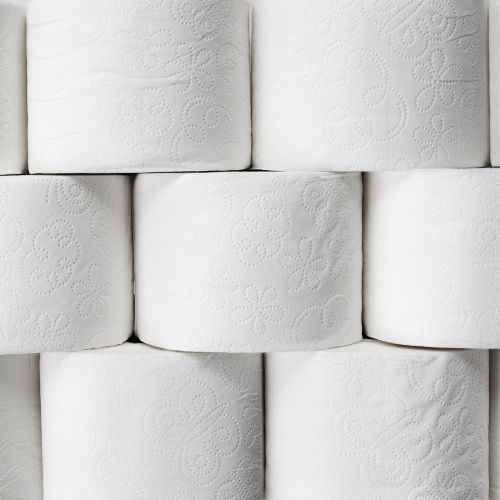
The impact of toilet paper on different plumbing systems can vary depending on the type of system and the quality of the toilet paper used.
Septic Systems
If you have a septic system, it is essential to choose toilet paper that is septic-safe. Septic-safe toilet paper is designed to break down quickly and easily, which reduces the risk of clogs and backups in your septic system.
If you have a septic system, things you should not put down your drain include:
- Feminine products
- Cooking grease or oil
- Cigarette butts
- Coffee grounds
- Dental floss
- Cat litter
- Paper towels
- Personal hygiene wipes
- Prescription medicines
- Excessive food waste in a garbage disposal
- Paint
- Solvents
- Toxic cleaners
- Toys
- Anything too large to flush
Keep this list in mind for sewer systems as well.
Sewer Systems
If you have a sewer system, you can be less fussy about your toilet paper choice. However, it’s important to note that even if you have a sewer system, using too much toilet paper at once can still cause clogs in your pipes.
It’s best to use only as much toilet paper as you need and to flush frequently to prevent buildup.
Older Plumbing Infrastructure
If you have an older plumbing system, it’s crucial to choose toilet paper that is easy to break down.
Older pipes and plumbing infrastructure are more prone to clogs and backups, and using thick or ultra-plush toilet paper can exacerbate these problems.
Slow-dissolving toilet paper can get caught in your pipes and build up over time, creating a potential clog.
If you have an old toilet, bad pipes, a septic tank, or a child who loves to use handfuls at a time… it’s even more important you buy the right toilet paper to avoid disaster. This is 1-ply toilet paper, and if you can’t stand that thought, try 2-ply, but use sparingly.
The Environmental Impact of Toilet Paper
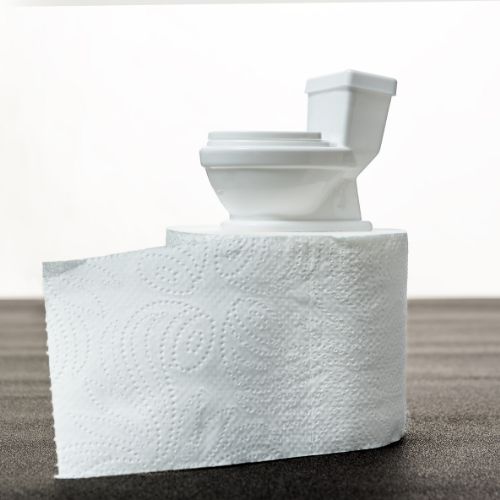
When it comes to toilet paper, it is important to consider not only its effectiveness in preventing clogs but also its impact on the environment. Here are some things to keep in mind:
Eco-Friendly Toilet Paper Options
Many brands now offer eco-friendly toilet paper options made from recycled materials and are biodegradable.
These options are typically better for the environment because they reduce the amount of waste in landfills.
Some popular eco-friendly brands include Seventh Generation, Who Gives a Crap, and Bim Bam Boo.
The Balance Between Dissolvability and Strength
With the introduction of 3-ply and 4-ply toilet paper, quilted options, and so-called flushable wipes, many toilet papers are too strong and do not dissolve quickly enough, leading to clogs. Finding a balance between dissolvability and strength is key.
One way to determine a toilet paper’s dissolvability is to look for the “septic-safe” label on the packaging. This means the toilet paper has been tested and proven to dissolve quickly and easily in water.
You can test the toilet paper yourself by placing a few sheets in a jar of water and shaking it vigorously. If the toilet paper breaks down quickly, it is likely an excellent option to prevent clogs.
Preventing Toilet Paper Clogs
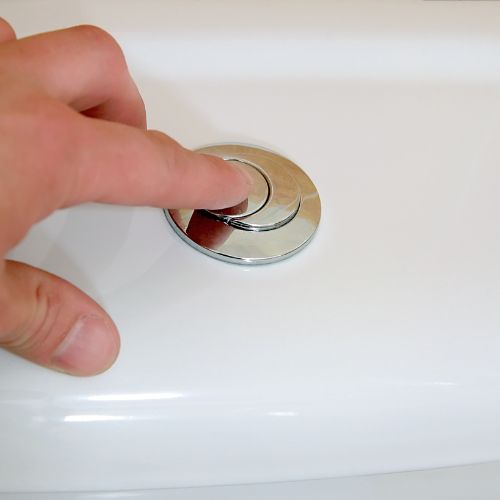
Toilet paper clogs can be a frustrating and unpleasant experience. Fortunately, there are several best practices you can implement to prevent clogs from occurring in the first place. By following these tips, you can avoid costly plumbing repairs and keep your bathroom running smoothly.
Proper Flushing Etiquette
One of the most important things you can do to prevent toilet paper clogs is to practice proper flushing etiquette. This means only flushing toilet paper and bodily waste down the toilet. Avoid flushing anything else, such as feminine hygiene products, baby wipes, or paper towels.
Consider how much toilet paper you use. Too much toilet paper at once can overwhelm your pipes and cause clogs. To avoid this, use only as much toilet paper as you need and flush frequently to prevent buildup.
In our house, we have an older plumbing system and have experienced minor clogs to total blockages. Most of our household know to courtesy flush when pooping, that is, flush the poop, then wipe and flush the paper. This avoids clogging the toilet every time you poop.
Choosing the Right Toilet Paper
Thicker, more luxurious toilet paper may seem like a good idea, but it can be more likely to cause clogs. Instead, opt for thinner, one-ply toilet paper designed to break down more efficiently and reduce the risk of clogs.
Regular Plumbing Maintenance
One of the best ways to prevent toilet paper clogs is to schedule regular plumbing maintenance. A professional plumber can inspect your pipes and identify any potential issues before they become significant problems.
They can also clean out your pipes and remove any buildup or debris that may be contributing to clogs.
Frequently Asked Questions
Does bamboo toilet paper clog pipes?
Bamboo toilet paper is less likely to clog pipes than regular toilet paper. Bamboo toilet paper starts to break down immediately upon contact with water, which helps it dissolve faster in pipes and septic systems compared to wood fiber toilet paper.
Does Cottonelle toilet paper clog pipes?
Cottonelle toilet paper is generally not considered to be one of the toilet papers that causes clogs. Sources including The Original Plumber indicate that Cottonelle toilet paper is actually less likely to clog pipes and septic systems
What is the best toilet paper that won’t clog pipes?
1-ply is the thinnest type of toilet paper, it breaks down more easily in water. This allows it to pass through pipes without issue. Some brands like Scott 1000 1-ply toilet paper have been shown to break down faster than others during testing.
Does Charmin clog toilets?
Charmin is a thicker, quilted, multi-ply toilet paper which means it takes longer to break down in water than thinner, single-ply options. It is septic safe, however, feedback from users think that Charmin has contributed to increased clogging of toilets.
Does tissue clog toilets?
Facial tissues are more likely to clog toilets than toilet paper. Tissues don’t break down as easily and tends to clump together rather than disintegrating quickly.
Does Kirkland toilet paper clog pipes?
Tests by Roto Rooter found Kirkland 2-ply toilet paper breaks down at a similar rate to other brands. It is safe for most homes and septic systems, and should not pose a clogging risk in properly maintained pipes.
Dealing with Toilet Paper Clogs
Dealing with a toilet paper clog can be a frustrating and messy experience. Fortunately, there are several DIY methods you can try to clear and dissolve toilet paper, including:
- Use a plunger
- Try a toilet auger
- Vinegar and baking soda method
- Using salt and hot water
- Wait for the paper to dissolve and the toilet to unclog itself
Was Your Toilet Paper Causing the Clog?
Toilet paper can clog pipes, but it is rare if you use single-ply or two-ply toilet paper. If you find your toilet clogging more frequently, it could be the ultra-plush, quilted, textured, and super-strength toilet paper causing the problem.
By following these simple tips, you can help prevent clogs in your toilet and keep your plumbing system flowing smoothly.
